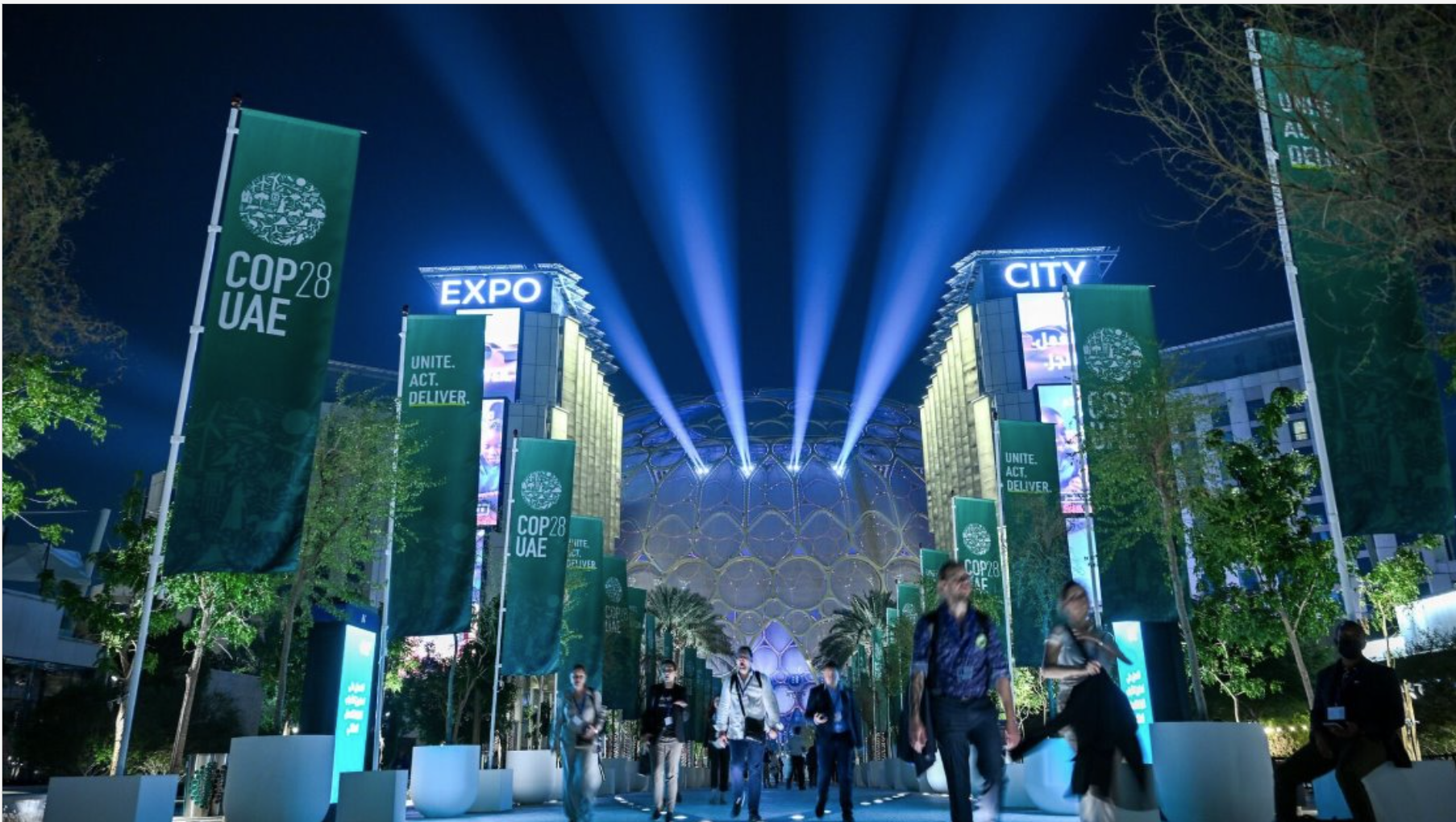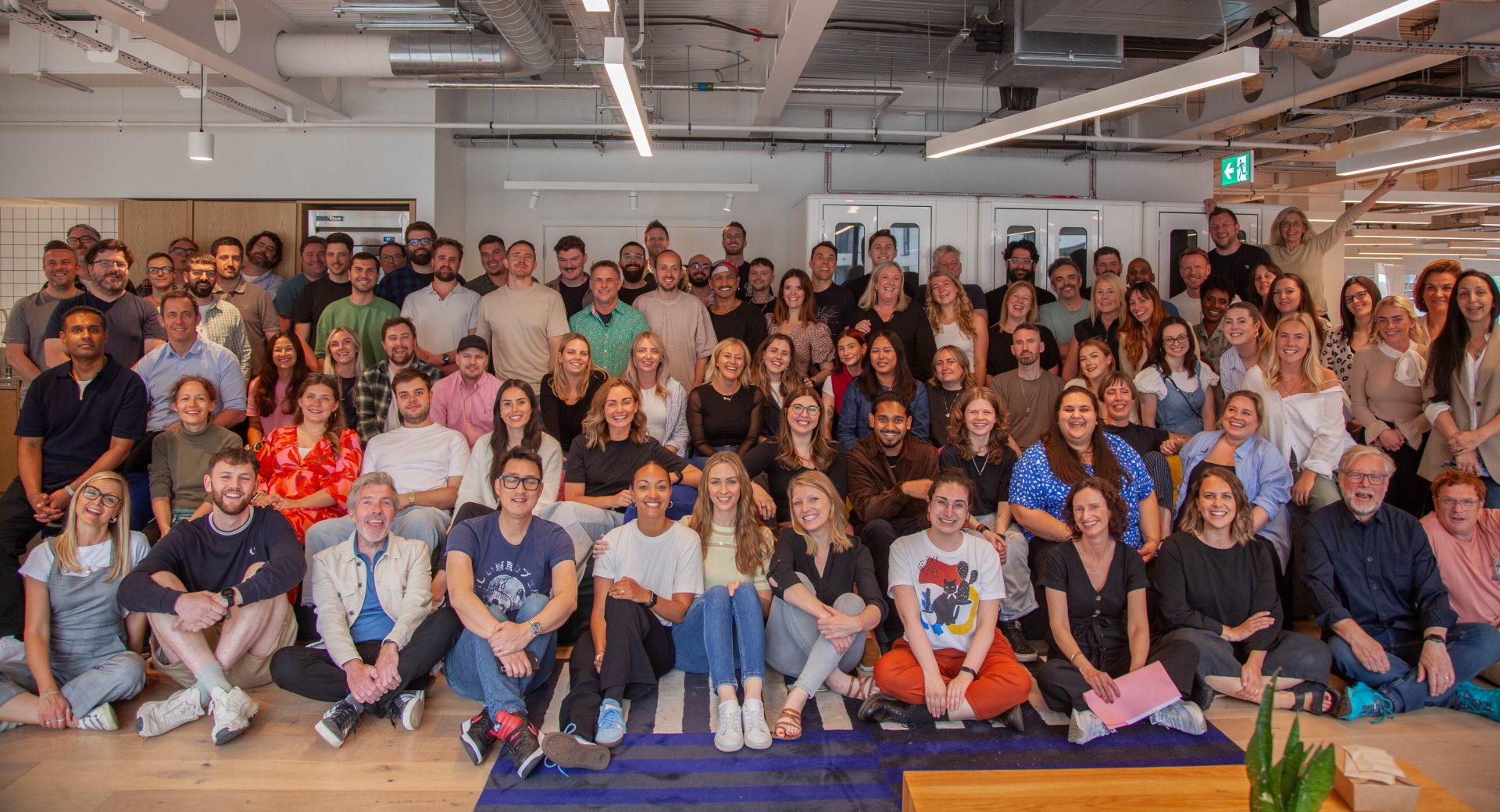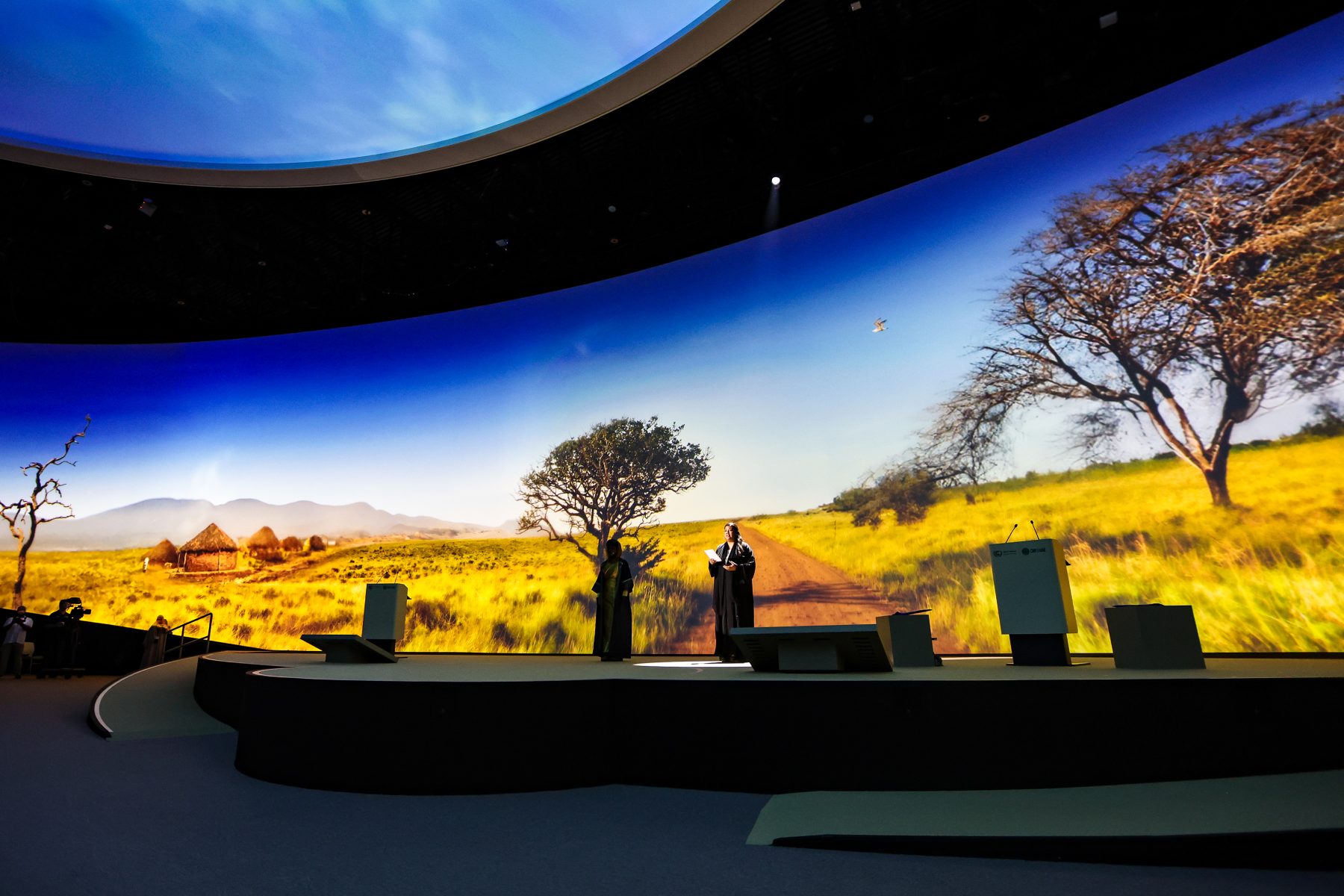Emerging green event technologies for events of the future

Adopting new and emerging green event technology is one way the sector can take the lead in creating a more environmentally sustainable global economy.
The future of events is undoubtedly green, and we’re excited to be at the forefront of this eco-conscious revolution. Integrating emerging green technologies can pave the way for a more sustainable and responsible events industry.
With this in mind, discover some of the latest green technologies making waves in events…
Green event technology examples and trends to watch
From networking software to the metaverse – emerging technologies can lower your environmental impact while also helping to craft mesmerising experiences for event attendees.
Here are some of the technologies we’re exploring to deliver maximum experience with minimal environmental impact…
1. Sustainable mobile event apps
Sometimes it feels as if the whole world is within our phones. Smartphones have transformed the event experience, from ticketing and navigation to live-streaming content in real time.
The latest event apps and event management software allow attendees to access event information, schedules and maps while minimising the need for paper programs and assets.
Apps can also be used to help people make responsible transport choices and connect with fellow attendees through matchmaking software. For example, Blendology’s ‘one-tap’ technology allows attendees to keep track of leads, facilitating human interaction and helping to build lasting relationships. This eliminates the need for single-use badges and printed collateral.
Trip Shift is another exciting tool for door-to-door carbon accounting. This mobility-based emissions calculator provides on-the-go calculations from commutes, business travel and transport and could be a great addition to an event – encouraging conscious travel and bolstering sustainability reporting.
Chatbots are another form of technology that is helping to lower environmental impact at events by;
- Facilitating immediate global conversations.
- Sharing QR codes for registration, route planning, live polling and notifications.
- Guiding people through event venues to minimise the need for signage.
- Sharing real-time traffic information to encourage efficient travel.
- Collecting feedback to provide insights on resource allocation for the next event.
This digital form of communication improves efficiency, reduces the need for paper and keeps us connected.
2. Food waste-busting apps
Catering is a significant aspect of any event, and one of the biggest contributors of waste.
Behaviours are starting to shift and attendees are eager to adopt more sustainable ways of eating. It could be as simple as opting for plated food options over a buffet, to help minimise unnecessary waste.
Emerging technologies are offering sustainable solutions to this issue. From lab-grown meat to vertical farming, these technologies allow event planners to offer delicious, sustainable options that are kind to the planet.
One great initiative out there is the Olio app. If you have leftover food after an event, local volunteers will collect it and distribute it to others in the community. Their tailored analytics software allows event organisers to build the social and environmental difference this is making into reports.
3. Augmented Reality (AR) and Virtual Reality (VR)
AR and VR technologies are poised to revolutionise events.
Organisers can reduce the need for extensive travel and time by offering virtual attendance options, lowering the carbon emissions associated with transportation. What’s more, AR and VR can enhance the event experience for on-site attendees by creating immersive, eco-friendly installations and displays.
We’re ready for the new era of events and have been busy delivering online events that adapt to the nuances of digital environments and connect deeply with audiences. From simple mobile apps for meetings to bespoke experiences that provide rich functionality for delegates, we tailor our virtual and hybrid events to meet your needs.
4. Artificial Intelligence (AI) for sustainable events
Generative AI is becoming an integral part of our everyday toolkit, bolstering our creative and production processes. It already transcribes our meetings, but the potential goes much further.
At the recent Event Tech Live event, Colja Dams, CEO of VOK DAMS highlighted some trailblazing new AI tools such as Wonder Dynamics, which allow users to automatically animate, light and compose characters, to create next-generation events that blend virtual and human experiences. While Versy AI can transform text prompts into virtual experiences.
Zenus AI provides ethical facial analysis for events to help organisers access valuable behavioural insights without collecting personal data.
Tools such as these allow us to add a digital layer to your event, helping us create unforgettable human experiences.
By streamlining production and summarising documents, AI can also improve efficiencies and significantly reduce waste.
AI also has the potential to:
- Analyse historical and real-time data to provide insights into optimal resource management to help reduce energy consumption and waste.
- Use data to predict attendance numbers, helping organisers plan accordingly with minimal wastage.
- Monitor energy consumption at events and provide insights for energy-saving measures.
- Power virtual events, reducing the need for travel.
5. The Metaverse
Metaverse technologies allow people from all over the world to experience and engage with event content up close, without leaving their homes.
For example, we created a solution that allowed 50 of the world’s top technology publications to experience Cisco global content in a future-focused environment. With the in-person event taking place in Las Vegas, metaverse technology allowed us to create an inspiring hybrid attendee experience.
We immersed the journalists in a 3D real-time generated environment that included a live broadcast from Cisco leadership, avatar creation for the entire audience and a bespoke content gallery with product experts that could be engaged in a natural, conversational manner. The technology allows the guests to ‘teleport’ between different event spaces so they could have a more exploratory experience around the content.
The potential of the metaverse for events is broad – when it comes to creating more sustainable hybrid or virtual events, you no longer have to sacrifice human experience.
6. Data analytics and measuring tools
Data analytics can help monitor energy consumption and other metrics to help you plan for more sustainable future events.
For example, we use carbon measurement tools like TRACE to track sustainability KPIs in real-time with weekly reviews to ensure the decisions we are making with our clients have minimal environmental impact.
This information can be built into event reports, communicating your sustainability credentials to your stakeholders and helping you to make more carbon savings during your next event.
7. Sustainable transport solutions
Finally, transportation is a major contributor to an event’s carbon footprint. Technologies such as electric shuttles, rideshare optimisation and bike-sharing programs can provide eco-friendly transportation options for attendees, reducing the environmental impact of their journey.
For example, You. Smart. Thing is a travel demand management platform for events. Its map-based travel assistant enhances visitor experience whilst reducing the carbon footprint created by travel. It uses personal travel plans and customised, accessible routing to help reduce visitor CO2e by 30%.
Other emerging technologies in this space include;
- Solutions such as predictive analytics can estimate attendance and transportation needs, allowing you to plan transport services more efficiently and minimise excess capacity.
- Ridesharing platforms can help to reduce the number of vehicles travelling to an event.
- Electric or hybrid vehicles for transportation to and from events help reduce air pollution and dependence on fossil fuels.
- Apps can offer dynamic routing based on real-time traffic conditions to help attendees choose the most efficient and environmentally friendly routes to the event venue.
- Smart parking solutions can optimise parking space usage, reducing the need for additional parking areas.
- Virtual elements such as video conferencing and live streaming technology enable remote participation, reducing the need for long-distance travel and minimising the overall carbon footprint of the event.
Integrating green technologies into your next event
Integrating new green event technology into existing processes requires planning and care.
Common barriers that are often cited include cost, time and infrastructure limitations. Logistical challenges, regulatory considerations and data security also come into play.
Despite these challenges, our teams are always excited to engage with new technologies to help create sustainable events that touch lives. We love making a difference and we thrive on tackling the challenge of making your event more socially and environmentally conscious, year on year, event after event.
We fit the technology around your requirements. Our in-house digital team and certified partner relations with the world’s most innovative developers enable us to create an event, activation or campaign that is entirely bespoke to your needs.
By delivering multi-format events, applying a circular economy approach and continuously optimising our procedures – we’ll work in step with you to deliver a sustainable event for the future.
If you’re looking to make your next event more sustainable, we can help. Get in touch to find out how, together, we can produce an inclusive, accessible and sustainable event that delivers impact.







